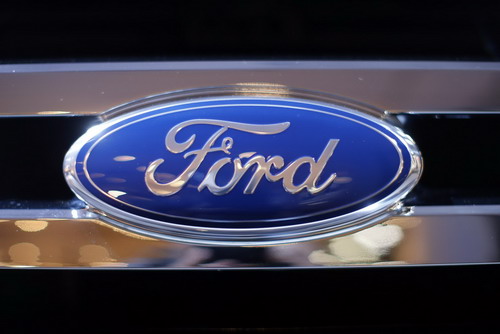|
 A Ford logo is seen on a car during a press preview at the 2013 New York International Auto Show in New York, March 28, 2013. [Photo / Agencies] |
Ford Motor Co was sued on Thursday by 20 consumers seeking compensation from the second-largest US automaker for selling vehicles over nearly a decade that they said were vulnerable to unintended acceleration.
The lawsuit filed in a West Virginia federal court alleged that more than 30 models equipped with electronic throttle control system did not have in place reliable safety systems, such as a brake override system.
The Ford, Lincoln and Mercury cars and trucks covered in the lawsuit were built from 2002 to 2010.
Among the models were the 2004-2010 Ford F-Series pick-up trucks, the country's top-selling vehicle, as well as the 2005-2009 Lincoln Town Car and 2002-2005 Mercury Cougar.
"They're trying to be compensated for their economic losses by having overpaid for cars that contained defects," Adam Levitt, a partner at Grant & Eisenhofer and head of the law firm's consumer practice group, said in a phone interview.
"Had they and the other class members been aware of these defects, they either wouldn't have bought the cars or would have paid a lot less for them," he added.
Concerns over unintended acceleration prompted Toyota Motor Corp to recall more than 10 million cars from 2009 to 2011.
In late 2012, Toyota agreed to spend $1.1 billion to settle US class-action litigation over claims that millions of its vehicles has possible safety defects.
Ford said studies by the National Highway Traffic Safety Administration have concluded that driver error is the "predominate" cause of unintended acceleration events.
"NHTSA's work is far more scientific and trustworthy than work done by personal injury lawyers and their paid experts," Ford said in a statement in response to the complaint.
"In rare situations, vehicle factors, such as floor mats or broken mechanical components, can interfere with proper throttle operation, and manufacturers have addressed these rare events in field service actions," Ford added.
Starting in 2010, Ford began installing a brake override system in some of its North American models, according to Thursday's court filing.
The plaintiffs come from 14 US states.
Levitt said the law firm is calculating potential monetary damages.
